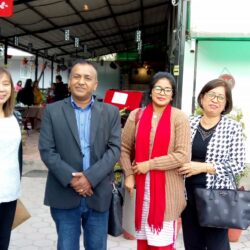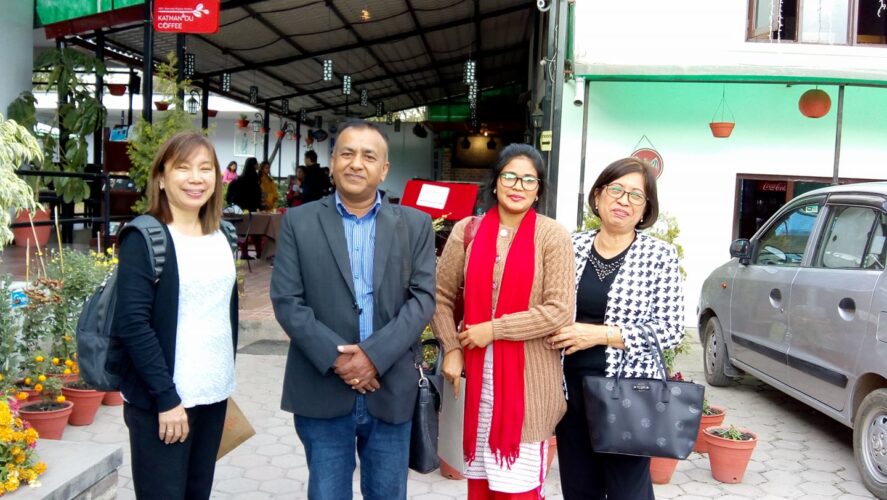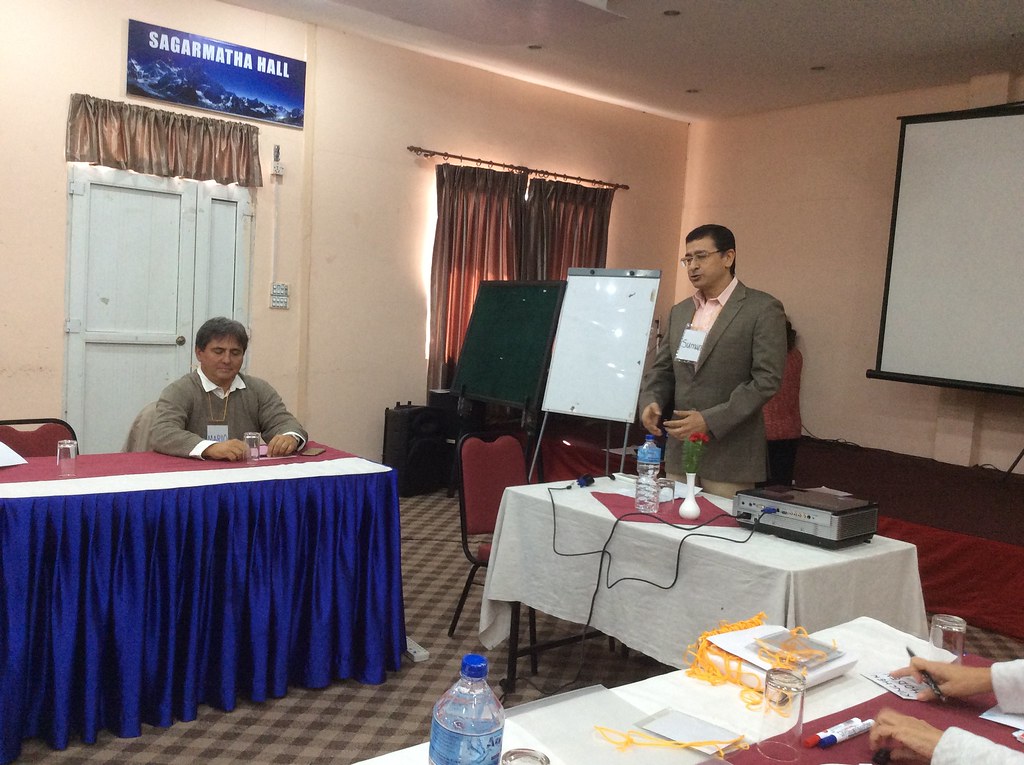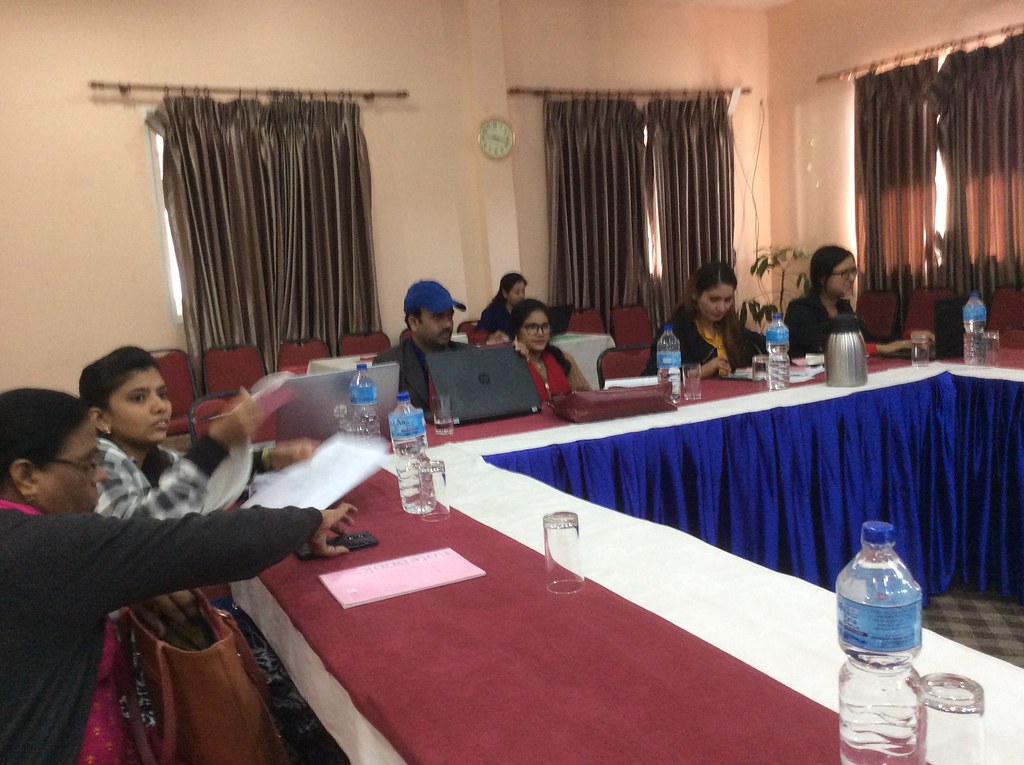
The ComDev Asia Initiative organized the training-workshop on communication planning for community radio focusing on disaster risk management (DRM) towards resilient family farming and rural livelihoods. It was held from November 1-3, 2017 in Kathmandu, Nepal, with 18 participants representing community radio, community media organizations and farmer groups. Participants came from five South Asian countries, namely: Bhutan, Bangladesh, India, Myanmar and Nepal.
As participants themselves acknowledged, the event was an opportunity to venture on working together to maximize the use of community radio as a platform for reaching out to the small farmers. The latter are recognized as the most vulnerable to the risks and aftermaths of natural disasters like typhoons and earthquakes.
Initial inputs to the workshop were provided among others by Ajaya Mani Dixit, Executive Director, Institute for Social and Environmental Transition in Nepal. He talked about the issues and challenges of climate change and disaster risks on family farming and rural livelihoods. This was complemented by discussion on the roles of communication for development (ComDev) and community radio in DRM, tackled by Mario Acunzo of FAO, Rome and Suman Basnet, Regional Coordinator of AMARC Asia-Pacific (AP). Facilitation of group work on ComDev planning for community radio with focus on DRM for resilient family farming and livelihoods were handled by Prativa Chhetri of AMARC-AP; Cleofe Torres, and Ma. Stella Tirol of the University of the Philippines Los Baños.
Substantive outputs in the form of sample ComDev plans for community radio that would address priority DRM issues peculiar to their respective contexts were produced by the participants as a group and as individuals. Most of the plans focused on addressing risks posed by flooding and the need for adaptive farm technologies. But they noted that the biggest issue concerns the farmers’ resistance to change old ways.
After the training-workshop, the participants have agreed to:
- Assist and collaborate with community radios in responding to information needs of farming and rural communities at the various stages of disaster risk management (DRM) with the use of ComDev methods and tools;
- Strengthen the linkage between community radios, farmer organizations, and other community media in addressing DRM issues in family farming and rural livelihoods; and
- Develop follow up mechanisms by which information sharing and learning on communication and community radio for DRM towards resilient family farming and rural livelihoods may be enhanced.
A loose network comprising of community radios, community media groups and agricultural development projects in Nepal who attended this training has been formed. This network will be expanded to include other community radios in the country (about 300) with agriculture development projects working with small farmers and farmer organisations.
During the workshop, Digital Green and Self-Employed Women’s Association (SEWA), both of India, have been invited to form part of the program’s steering committee. To formalize the arrangement, it was agreed that memorandum of agreement will be executed among partners; focal person for each group will be identified; and sharing of the work being done will be shared through the ComDev Asia regional web platform.
ComDev Asia Initiative is a recent program launched by AMARC Asia-Pacific together with FAO and the University of the Philippines Los Baños. It aims to support ongoing development programs, rural institutions, and local communities through activities that will enhance their capacities in ComDev. It also intends to foster partnership with relevant actors such as farmer organizations, community media, academe, and government agencies working for rural development.
AMARC Asia-Pacific refers to the Asia Pacific Regional Office of the World Association of Community Radio Broadcasters. Digital Green is a global development organization that empowers smallholder farmers through video-based approach. SEWA is a federation of women-led institutions that provides economic and social support to self-employed women in India.




